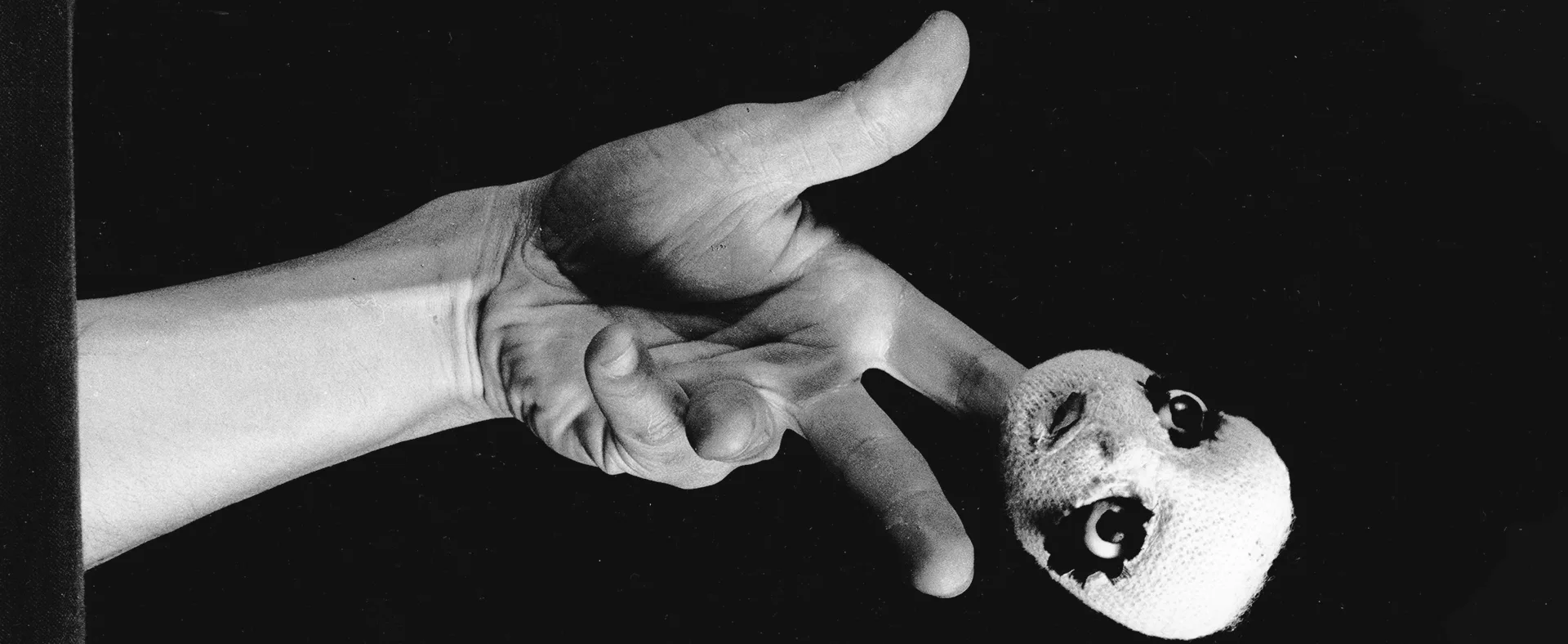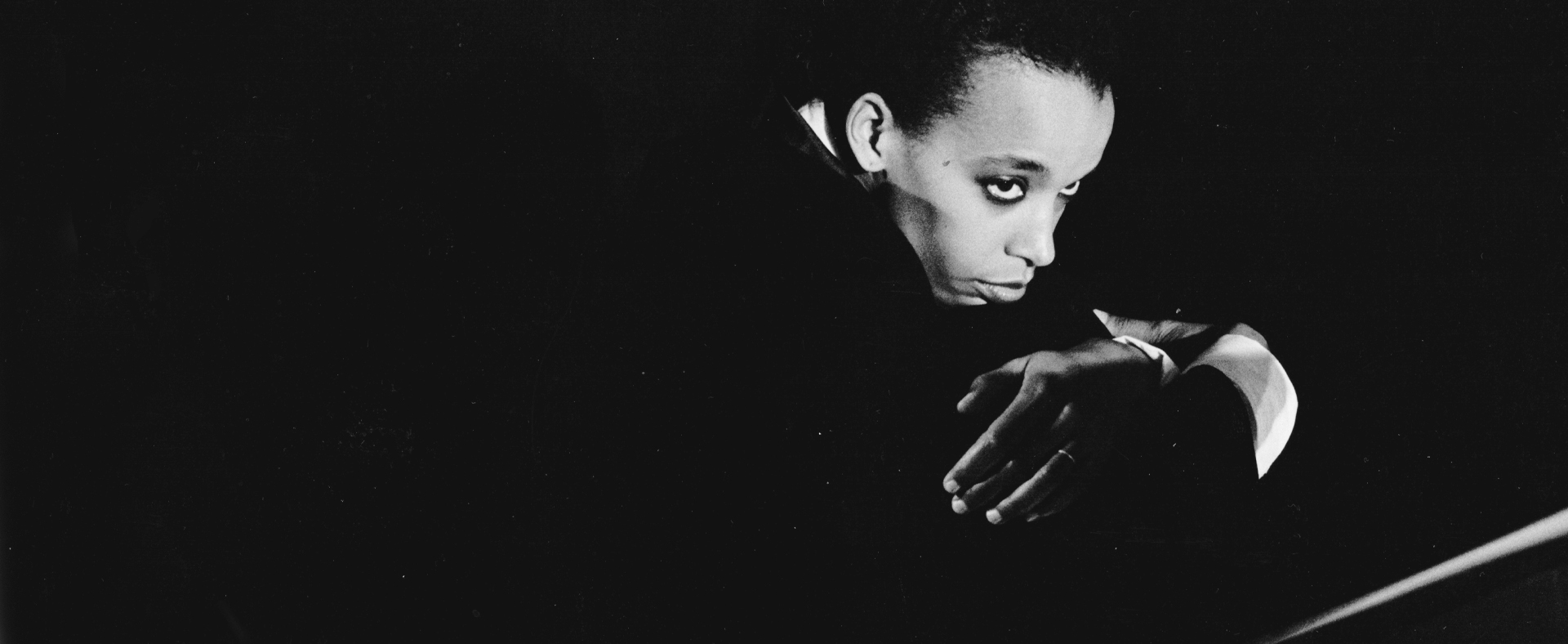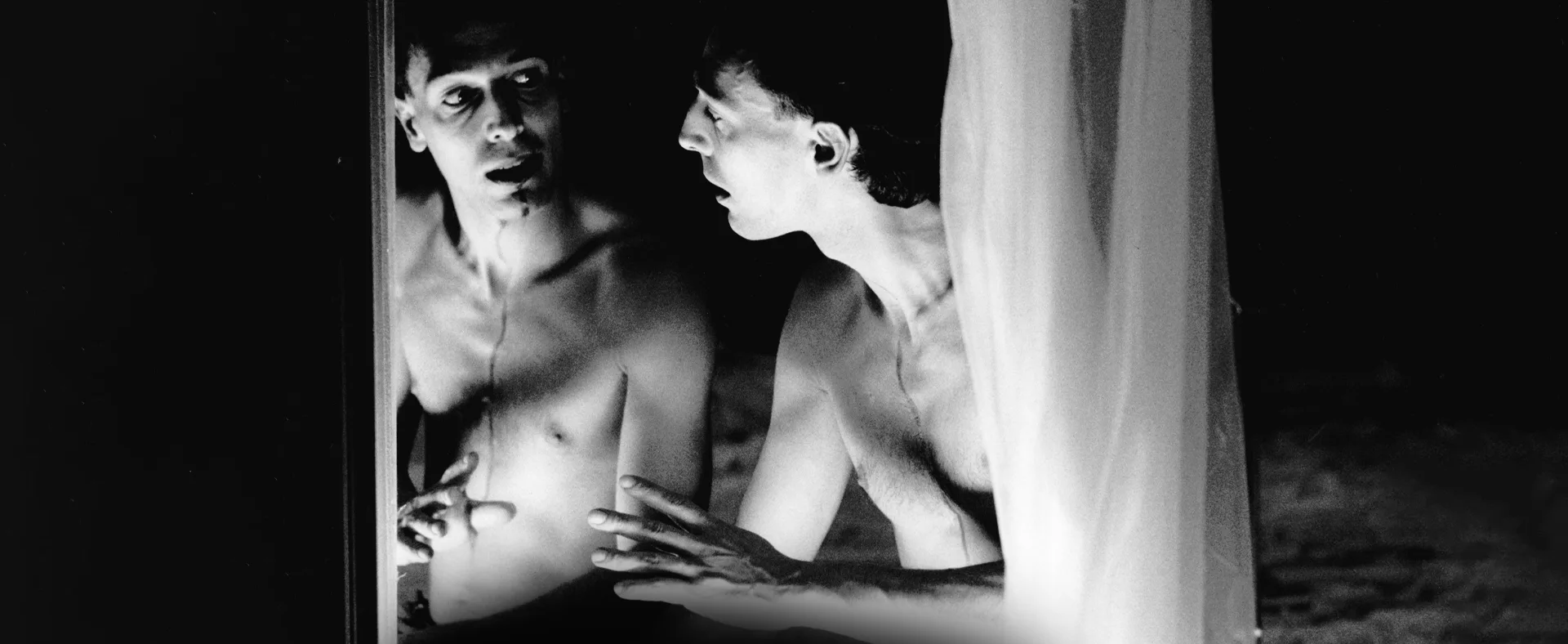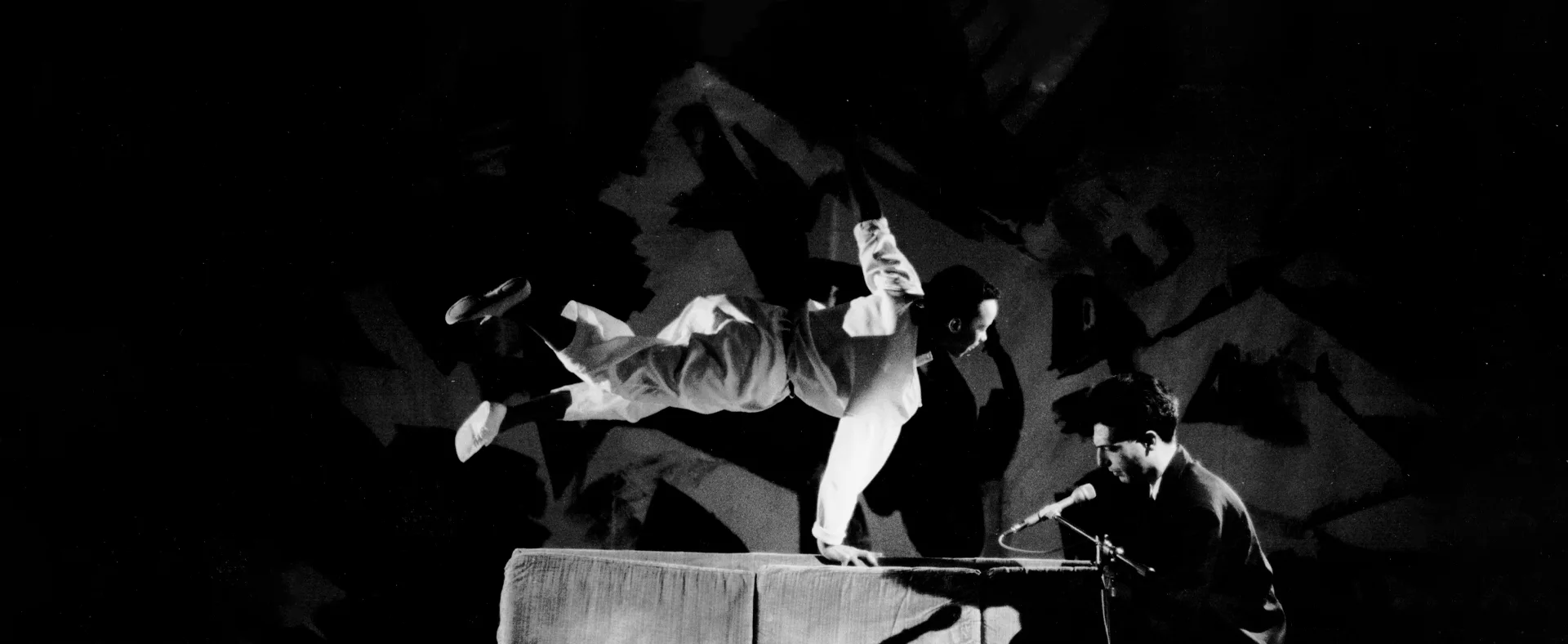This website uses cookies so that we can provide you with the best user experience possible. Cookie information is stored in your browser and performs functions such as recognising you when you return to our website and helping our team to understand which sections of the website you find most interesting and useful.
What can authorial
theater do today?
We asked ourselves this question on the first day we performed. We continue to ask it after more than 40 years in theater. Ours is the story of an open question.

The answer
of puppets and objects
1979
Alessandro Libertini founds the Piccoli Principi •
1981
Debut of the show Pulcinella ed Euridice •
1982
Chiara Fantini joins the Company •
First prize at the International Festival Arrivano dal mare in Cervia with Pulcinella•
ed Euridice
Participation in the Festival Mondial des Théâtres•
de Marionnettes di Charleville-Mézières
1983
Debut of the show Così mi piace •
1984
Stregagatto Award for Così mi piace. •
Debut of the show Deviazioni dalla Norma•
1985
Participation in the International Festival of Theatre for Young Audiences in Montreal •
Debut of the show Narciso amico mio •
The codes, automatics, and mannerisms of institutional theater left us perplexed. The stage interested us because it could unite arts, reformulate languages, and connect disruptively with people.
What could Pulcinella have achieved if he had been a puppet and the author was his puppeteer? This was the prelude to our poetics, which began with an incursion into puppet theater and never quite concluded.
We liked the puppets because they asked questions. First, we made them; then, they spoke to us, like Pinocchio, suggesting characters, roles, and interpretations. And about them, they asked our opinion, personal, unique, and authorial.
We then did the same with objects. Consumer society was delivering them lifeless, but to us, they seemed alive. In them, we found all the suggestions we sought to deviate from the norm and reflect on theater in our way.

The author's body
and the wisdom of the child
1986
Véronique Nah joins the Company •
Debut of the show Kinderszenen at •
Teatro alla Scala of Milan
1987
Narciso amico mio alla Biennale du Théâtre •
Jeunes Publics in Lyon
Narciso amico mio at the Youth Theater Festival •
of Helsinki
1988
Debut of the show Una cosa per un’altra •
1989
Debut of the show Dodici •
1992
Dodici restaged in Belgium with Belgian actors •
1994
Debut of the show A partire da Miles •
1995
Una cosa per un’altra restaged by the Blauw Vier •
company in Antwerp
A partire da Miles finalist at the Stregagatto Award 95/96.
1996
ETI/Camera d'Oro Award for the video
Oltre i Cavalli del Partenone
1997
A partire da Miles performed at La Cité de la Musique
in • Paris
A partire da Miles A Partire da Miles performed at the • Europa Jazz Festival in Le Mans
2000
Debut of La magia delle immagini al Musée d’Art • Moderne et Contemporain di Saint-Étienne
2001
Direction of the show De tooverfluit con la compagnia •
Het muziek Lod di Gent
2002
Premio Prix des régionales al Festival International •
Momix con La magia delle immagini
2004
Workshop at the Musée d'Art moderne •
et contemporain in Strasbourg
Laboratorio al Musée de l’Œuvre Notre-Dame •
Debutto dello spettacolo Il risveglio di Sirenetta a Madrid•
2006
La magia delle immagini al Musée d’Orsay di Parigi •
Debut of the show Celeste all’Osservatorio • Astrofisico di Firenze
Debut of the show Con gli occhi di Pinocchio at •
Festivaletteratura di Mantova
It then became difficult to understand whether we were manipulating the objects or the objects manipulating us. Indeed, it was they who brought our bodies onto the stage. We were not fond of showing ourselves, but they said, “Why? You are like us.” So, we did not step onto the stage as actors but as objects among objects.
Provocative and seductive, for contemplation and reflection, our author's body revealed itself to us and the eyes of the audience. Puppet body, furniture body. Placed body, exposed body. Body as ground for inscription, body as reason for inspiration.
Fundamental in those years was the relationship with childhood, not only in children’s theater. For us, the child was not just an audience member but also a travel companion to reflect on theater.
Their perplexities, their insights, and their thousand skills nourished our poetics. From them, we conceived our works; to them, we returned to receive their refined and stern judgment. In any case, the author they returned to us was bare.
We owe infinite aesthetic choices to the child's wisdom: from the abolition of “the theater’s fourth wall” to anti-intellectualism, from attention to form to a dramaturgy always between fiction and reality.

Theater beyond theater
2007
Debut of the show BaBa •
BaBa alla Biennale d’Art Contemporain di Lione
2008
Obraztsov in Bochum, Moscow, Saint Petersburg •
2009
BaBa in Romania •
Con gli occhi di Pinocchio at the Palais des Beaux-Arts, Brussels •
2010
BaBa at MADRE in Naples; BaBa in Finland, Germany, Canada, and Portugal •
2011
BaBa , at the Museo d’Arte Contemporanea Rivoli; Madrid; Vienna •
2012
BaBa in Hasselt, Belgium •
Io, diversa, at the Festival Météores in Brussels •
Visita in forma di spettacolo at the Centre Luigi Pecci in Prato •
Visita in forma di spettacolo at the Museo Stibbert in Florencee •
Visita in forma di spettacolo at the Museo Marino Marini in Florence •
Visita in forma di spettacolo at the SMS Santa Maria della Scala in Siena •
Visita in forma spettacolo at the Museo Archeologico Artimino •
2013
Debut of the show Umami in Marseille, European Capital •
of Culture 2013
2014
Collaboration with the Accademia della Crusca for the Festival •
Dante 2021
2015
Ritagli at the International Festival in Brussels •
Ritagli at the Festivaletteratura in Mantova •
2016
Visita in forma di spettacolo at the De Chirico a Ferrara exhibition •
2017
Creation of the show Scientifico! •
Ritagli at the Biennale Internationale des Arts de la Marionnette in Paris •
Ritagli at the International Bim Bam Festival in Salzburg •
2018
Ritagli in Jaipur and Kolkata •
Ritagli at the WeeFestival in Turin •
2019
Visita in forma di spettacolo at the Museo Casa Siviero in Florence •
Debut of the show Calderone immaginario at Le Pôle in •
Le Revest-les-Eaux, in collaboration
with the Musée d’Art de Toulon
2023
The Institute for Puppetry Arts and Popular Theatre in Grugliasco •
hosts Figuriamoci!
The economic crisis of 2007 was also the crisis of our theater: shorter tours, smaller
productions, and reduced opportunities for expression. We no longer had the space we once
did. And so, space became our problem: what could the author do outside of the theater?
They could listen to other spaces, as they had listened to puppets, objects, and children.
Thus began our para-theatrical forays into non-theatrical spaces: museums, monuments, homes, and cities. In these places, however, we did not bring our dramaturgy. On the contrary, the places brought theirs, helping us to rethink our condition as authors.
This is how we discovered ourselves as visitors. As such, we loved to present ourselves to our audience. We were visitors among visitors who, together with them, observed, showed, discovered and questioned, offering many points of view.
Our theater had always been militant, but the years of this “theater beyond theater” showed its necessity more than ever. We did not want to stop, nor were we interested in resisting, because the insatiable curiosity of our audience, which never ceased to surprise us, suggested one thing only: to insist.
And so we insisted.

An ongoing dialogue
More than forty years after the birth of the Piccoli Principi, we find that throughout our
activity, we have never pledged fidelity to genres, bent to clients' expectations, nor ever
pleased our audience.
Ours has not been a search for consensus but for confrontation, to
steal, rework, and return the author’s viewpoint to a permanently open dialogue with the
audience.
Therefore, we must continue to ask ourselves: what can authorial theater do
today?
